
All Star Baseball 2003 is a baseball video game published by Acclaim Entertainment in 2002. The game features Derek Jeter on the cover.

Salt Lake 2002 is the official video game of the XIX Olympic Winter Games, hosted by Salt Lake City, Utah, United States in 2002. Developed by Attention to Detail and published by Eidos Interactive, it was released for Windows, PlayStation 2 and Game Boy Advance. An Xbox version was also planned but cancelled.

Star Wars Episode I: Jedi Power Battles is an action Star Wars video game set during the time frame of Star Wars: Episode I – The Phantom Menace. The game was first released for the PlayStation, and afterwards for the Dreamcast and the Game Boy Advance. A remastered version of the game is scheduled to release for Windows, Nintendo Switch, PlayStation 4, PlayStation 5, Xbox One, and Xbox Series X/S in January 2025.
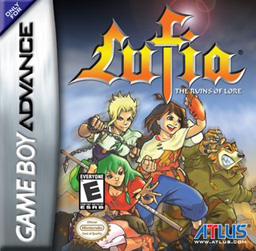
Lufia: The Ruins of Lore, known in Japan as Chinmoku no Iseki: Estpolis Gaiden, is a role-playing video game developed by Atelier Double and published by Taito in Japan in 2002 and by Atlus a year later in North America. It is the fourth title in the Lufia series of video games and was released as a "gaiden", or side story, to the main series; as a result, it does not feature many elements common to the rest of the series, such as the Sinistrals and the Dual Blade.

Spider-Man: Mysterio's Menace is a 2001 action video game based on the Marvel Comics character Spider-Man. It was developed by Vicarious Visions and published by Activision for the Game Boy Advance. The game is a standalone sequel to Spider-Man (2000) and Spider-Man 2: Enter: Electro (2001). It was released on September 18, 2001, in North America, and on April 26, 2002, in Japan. The game was later re-released on a Twin Pack cartridge bundled with X2: Wolverine's Revenge in 2005.

Mystic Heroes is a hack and slash video game developed by Koei. The game is loosely based on Investiture of the Gods, a Chinese supernatural novel about the fall of the Shang dynasty and the rise of the Zhou dynasty.

Bleach: The Blade of Fate is a 2D fighting game that features the cast of characters from the Bleach anime and manga. The game featured Nintendo's Wi-Fi Connection, which allowed players to connect and play against players all over the world. The game modes include story mode, arcade mode, VS mode, training mode, challenge mode, and survival mode, time attack mode and Urahara shop. The game's theme song is "Ichirin no Hana" by High and Mighty Color.

Digimon Racing is a racing video game developed by Griptonite Games and published by Bandai for the Game Boy Advance. Part of the Digimon media franchise and video game series, it utilizes Digimon's characters and elements. Its gameplay largely resembles that of traditional racing games, but also utilizes elements of kart racing and action games. Its eleven playable characters can be increased to over 40 via Digivolution.

WWF Road to WrestleMania is a video game released on the Game Boy Advance handheld console by THQ, based on the World Wrestling Federation's pay-per-view of the same name. It was the first WWF game to be released on the Game Boy Advance, and the only one released under the WWF name, as the promotion was renamed in 2002. The main part of the game is the season mode where players have to win matches to get a heavyweight championship title match.

SpyHunter is a vehicular combat game released for the PlayStation 2 in 2001. It is a remake and sequel of the 1983 arcade game of the same name. It was later ported to GameCube, Xbox, Game Boy Advance, Windows, Mac OS X, and Tapwave Zodiac. In the game, the player drives the G-6155 Interceptor, an advanced, weaponized spy vehicle. Unlike the original's top-down view, the remake is played with a chase camera, similar to a racing game. The PlayStation 2 version received positive reviews while reception for the ports was mixed. A sequel, SpyHunter 2, was released in 2003.

Disney Sports Skateboarding is a 2002 skateboarding video game developed and published by Konami. It was released for the GameCube and Game Boy Advance. It received negative reviews.
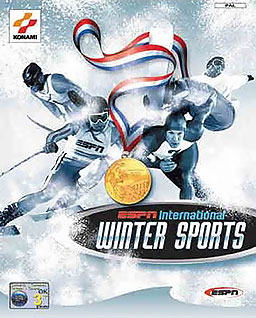
ESPN International Winter Sports 2002, known in Japan as Hyper Sports 2002 Winter, is the name of two sports video games released in 2002 by Konami, one for the PlayStation 2, Xbox, and GameCube, and the other for the Game Boy Advance. In Japan the game is part of the Hyper Sports series, known internationally as the Track & Field series.

Finding Nemo is a 2003 action-adventure video game based on the film of the same name by Disney and Pixar. The GameCube, PlayStation 2 and Xbox versions were developed by Traveller's Tales, the Game Boy Advance version of the game was developed by Vicarious Visions, and its Microsoft Windows and Mac versions were developed by KnowWonder. All versions were published by THQ.

Rocky is a fighting video game published by Rage Software and released in 2002. The game is based on the Rocky franchise.
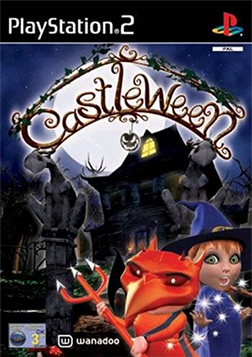
Castleween is the name of two 2002/2003 platform video games, one developed by Kalisto Entertainment for the PlayStation 2 and ported to the GameCube by Wanadoo Edition, and the other developed by Magic Pockets for the Game Boy Advance.

Shining Soul is an action role-playing game for the Game Boy Advance. It is part of the Shining series. Shining Soul is a reboot of the Shining series. The game was followed by a sequel, Shining Soul II, in 2003. Both games were re-released in Japan in early 2006 as part of the Game Boy Advance "Value Selection".
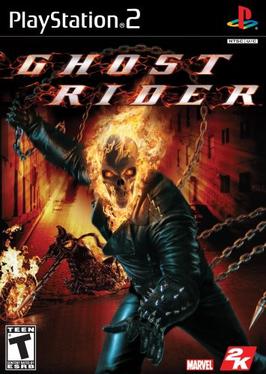
Ghost Rider is a third-person hack and slash game released for the PlayStation 2, PlayStation Portable, and Game Boy Advance based on the 2007 film Ghost Rider, released worldwide in February 2007. An Xbox version was originally planned for release, but was cancelled.
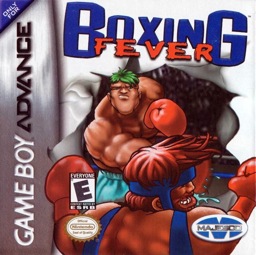
Boxing Fever is a boxing video game developed by Digital Fiction and published by Majesco Entertainment and THQ for the Game Boy Advance. It was released in North America on October 30, 2001, and in Europe on February 15, 2002.
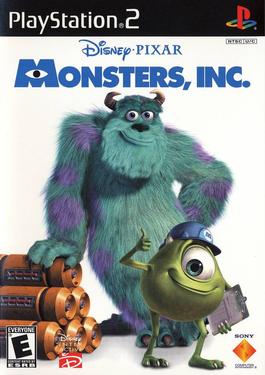
Monsters, Inc. is a 2001 platform game based on the 2001 film of the same name released for Game Boy Color, Game Boy Advance, and PlayStation 2. The Game Boy Color and Game Boy Advance versions of the game were released in October 26, 2001, in North America and in February 1, 2002, in Europe. The PlayStation 2 version was only released in North America in March 20, 2002. The Game Boy Advance version was also released on a twin pack cartridge bundled with Finding Nemo in 2005.

Fire Emblem Warriors is a hack and slash action role-playing game developed by Omega Force and Team Ninja, and published by Koei Tecmo in Japan and Nintendo internationally for the Nintendo Switch and New Nintendo 3DS. The game was released in Japan in September 2017, and worldwide the following month. The game is a collaboration between Koei Tecmo's Dynasty Warriors franchise and Nintendo and Intelligent Systems's Fire Emblem series.




















